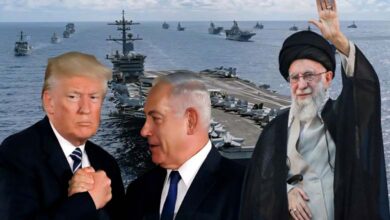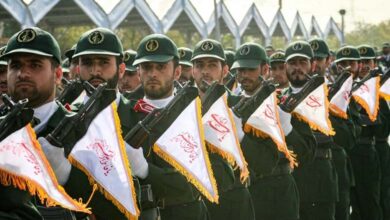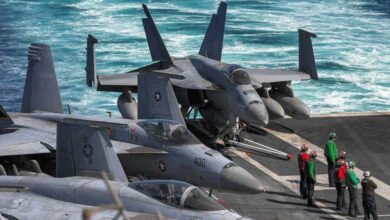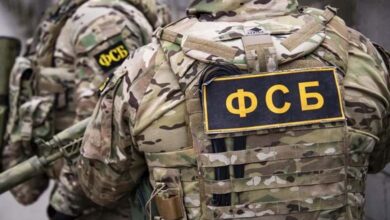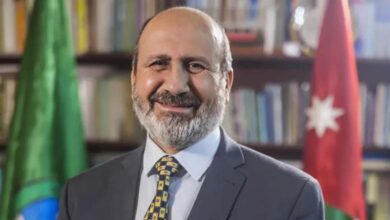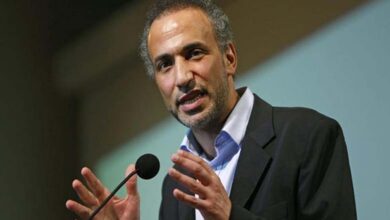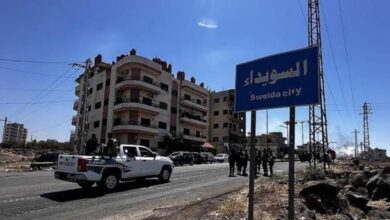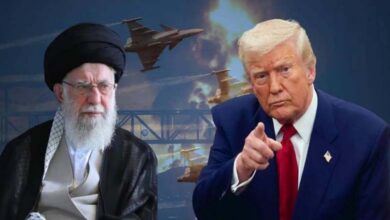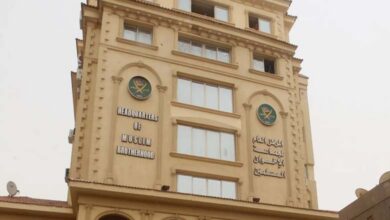Qaani in Baghdad to Impose Iranian Agendas on the Arab Summit
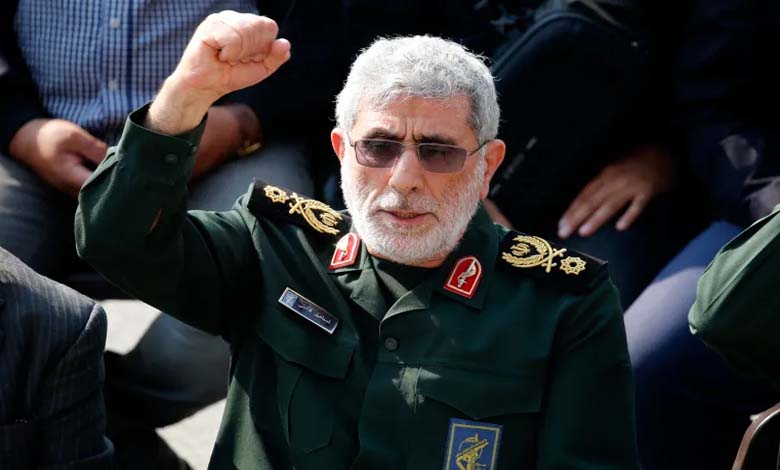
Iran is attempting to include several of its demands in the agenda of the Baghdad summit, a move considered a breach of the diplomatic norms that govern Arab summits, which are traditionally based on Arab consensus—not the wishes of a non-Arab state.
Just days before the Arab Summit is set to take place in Baghdad, the visit of Iranian Quds Force commander Esmail Qaani to the Iraqi capital has raised numerous questions and suspicions regarding the agenda he is carrying—especially amid reports that Tehran is actively seeking to insert its demands into the summit’s official program.
-
Ismail Qaani: A Faint Appearance After Rumors of Death and Arrest
-
Iran Investigates Qaani Amid Suspicions of His Office Manager’s Espionage for Israel
Informed sources revealed that the visit was not simply about bilateral coordination but was part of a calculated effort to leverage Iran’s influence in Iraq to serve a regional agenda that lacks Arab consensus.
According to a source cited by the Kurdish Iraqi news outlet “Shafaq News,” Qaani discussed several key issues with Iraqi National Security Adviser Qassem al-Araji, most notably border security and the implementation of the 2023 security agreement between Baghdad and Tehran. Notably, the talks went beyond security and touched upon the ongoing Iran–U.S. negotiations. Qaani is expected to meet privately with leaders of Iraq’s Coordination Framework to brief them on sensitive aspects of these talks and the future of international nuclear agreements involving Iran.
-
Ismael Qaani Back in Iraq Again… What Are the Objectives of the Visit?
-
Ismail Qaani in Baghdad: What is behind the suspicious visit of the commander of the Quds Force?
The same source indicated that Qaani delivered explicit messages expressing Iran’s desire to obtain Arab support for lifting Western sanctions—seen by Tehran as essential to accelerating a return to a nuclear deal with real U.S. guarantees. What sparked controversy, however, is Iran’s proposal to explicitly include these demands in the summit’s agenda, a clear violation of Arab League diplomatic protocols that require consensus from member states.
Political sources in Baghdad also reported pressure from Iran-aligned factions within the Iraqi government on Prime Minister Mohammed Shia al-Sudani, aimed at influencing the summit’s guest list. These factions opposed inviting Syrian President Ahmed Al-Sharaa and pushed for excluding Kuwait, due to a renewed border dispute over the Khawr Abdullah waterway.
-
Iran Authorizes Al-Sudani to Decide the Fate of Iraqi Factions Loyal to It
-
Iran and Iraq pledged to improve border cooperation and promoting trade
Iraqi and Arab political circles fear these maneuvers indicate an effort to “hijack” the summit’s agenda in favor of Iranian interests—an outright challenge to Arab League norms that could further fracture Arab unity on regional issues, especially concerning Iran.
Meanwhile, Arab diplomatic sources confirmed that several Arab leaders will not attend the summit, widely seen as a signal of concern over possible Iranian infiltration of the summit’s proceedings. Despite official reassurances that the summit will maintain its Arab identity and address core Arab issues, the notable absence of some leaders casts doubt on unified Arab positioning.
-
Iran Reshuffles Its Proxies in Yemen and Iraq amid U.S. Strikes
-
After Iraqi Factions Abandoned It, Khamenei: Iran Does Not Need Proxies in the Region
Qaani’s visit is viewed as part of a dual Iranian strategy—on one hand, to reassure neighboring countries of its peaceful intentions; on the other, to exploit its influence in Iraq to send indirect messages to Washington and Gulf capitals, asserting Iran’s “upper hand” in certain Arab capitals. The timing of the visit, just before the summit, strongly suggests Tehran sees Baghdad as a gateway for achieving a political breakthrough in the Arab region.
For his part, Iraqi Prime Minister Mohammed Shia al-Sudani is trying to strike a delicate balance between domestic political forces and Arab expectations. While seeking to present Baghdad as a unifying Arab capital, he faces significant pressure from pro-Iranian factions with their own agendas. He met with Parliament Speaker Mahmoud al-Mashhadani to unify political messaging ahead of the summit, emphasizing support for the Palestinian cause—a point of Arab consensus that could also serve to mask the inclusion of less agreeable items.
-
The Sunni and Shia Components: Renewed US-Iranian Conflict Escalates in Iraq – Key Scenarios
-
How does the Iraqi Prime Minister confront Iranian threats and the US presence?
The upcoming Arab Summit in Baghdad, which was meant to promote Arab unity, now faces serious challenges due to Iran’s attempts to expand its influence through the Iraqi gateway. As suspicions grow over a potential manipulation of the summit’s agenda, there is an urgent need to reaffirm the independence of Arab decision-making and ensure the summit does not become a platform for regional power struggles.


